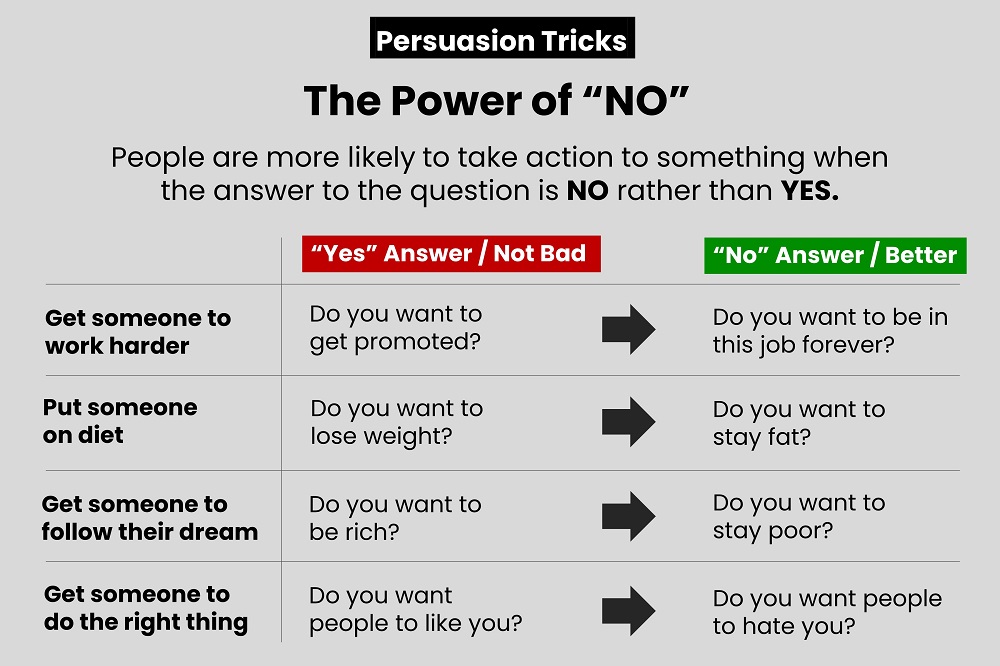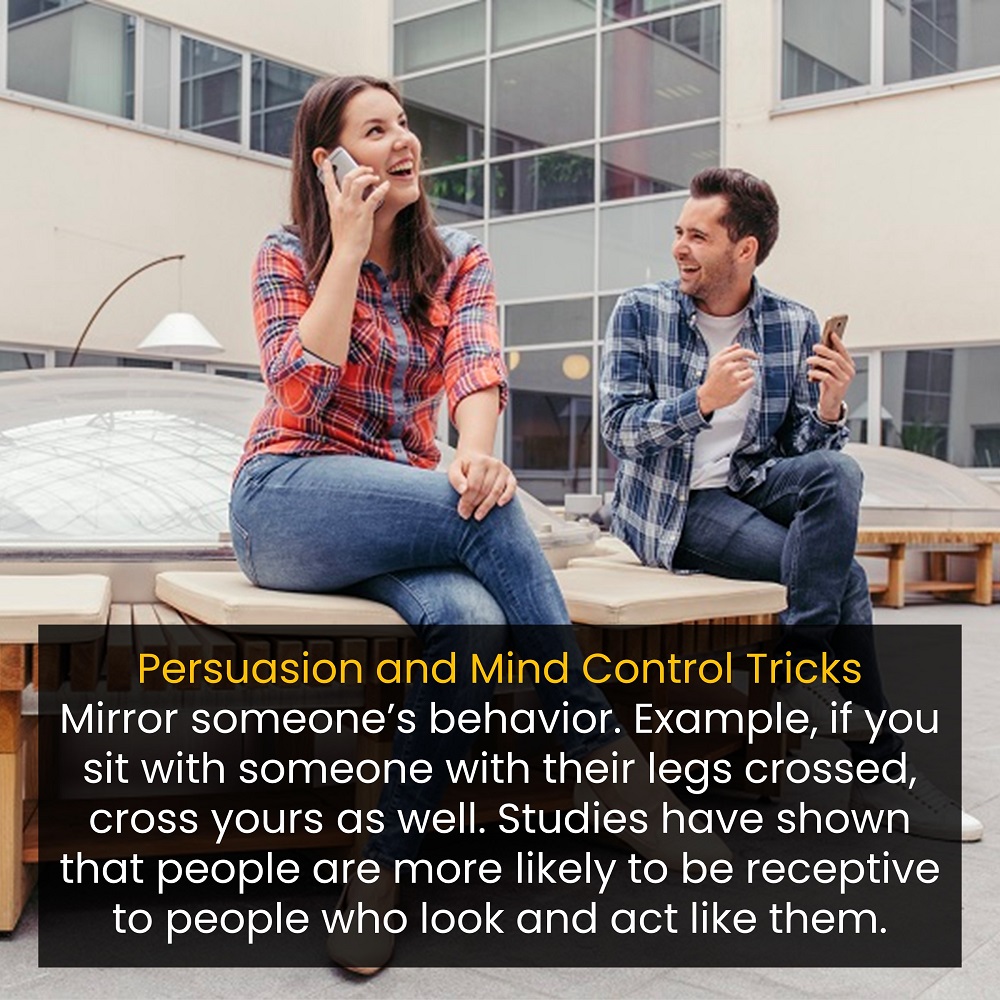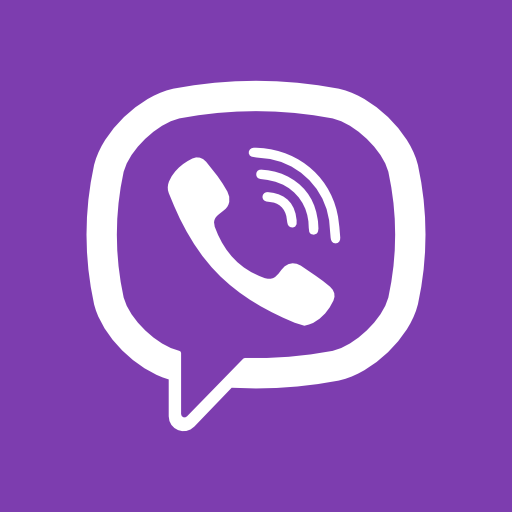12 Effective persuasion and mind control techniques 😈
-
1. Favors and Gifts

Give someone a gift for no reason and they will feel obliged to return the favor.
Because you started off, you have the advantage of deciding the returned favor. So you control both ends, the initial gift or favor and returned one.
The gift doesn't have to be something expensive or fancy, a box of donuts or a cup of coffee can do wonders.
What I usually do is tip the waiter before the service starts to get a super good and fast service.
-
2. Compliments

Compliments can have a similar effect to gifts but only if they are true and honest.
You don't want to tell a fat lady that she has a great body, that would be awful and will certainly backfire.
The most beautiful thing about compliments is that they are remembered for a long period of time making them very effective in long-term relationships.
-
3. Ask for more than what you want

This comes straight from Negotiation 101.
It is already an established fact that you should always ask for more than what you want in order to get what you really want.
For example, in a job interview, if $5000 is an OK salary, you should ask for $7,000 instead. It is unlikely that your initial request will be filled and will probably be cut down to $5,000, which is what you wanted in the first place. If you started off with $5000, you are more likely to get less than that.
This principle can be applied to any situation, not necessarily money-related.
-
4. The power of NO

It has been repeatedly shown that people are more likely to react to something when the answer to the question is NO rather than YES.
Want to put someone on a diet?
Instead of "Do you want to lose weight?",
say "Do you want to stay fat".
Want someone to work harder?
Instead of "Do you want to get promoted?" ,
say "Do you want to be stuck in your position forever?".
Want someone to quit smoking?
Instead of "Do you want to be able to breath better?" ,
say "Do you want to die of lung cancer".
-
5. Use Emotional Triggers

Some words trigger emotions in people that are more powerful than logic or reasoning.
Example: "fair", "good-fit", "quick and easy", "tested and proven", etc.
Was someone less-deserving than you promoted at work? Instead of telling your manager that you deserve it more, ask them "Was this fair"?
Most people are very concerned about being fair that they might actually change their stance based on that feeling alone.
Want to gear someone into trying something? Describe it with emotionally triggering words like tested, quick, and easy.
-
6. Mirroring Behavior

Mirror someone's behavior as means of subliminal influence.
For example, if you are sitting with someone with their legs crossed, cross your legs as well.
Studies have shown that people are more likely to be receptive to people who look and act like them.
-
7. Challenge

Tell someone that they can't do something if you really want them to do it.
This old psychological trick works for most people if applied correctly.
The secret is not to be direct and obvious enough, otherwise, people will pick up easily on this.
Another version of this trick is to convince someone that only they can accomplish this and not one else.
People are easily faltered and absolutely love it.
-
8. "Start instead of "Do"

Use the word "start" instead of "do" to get things going, especially when you are giving instructions.
"Do" has no time attached to it and has planning implied, "Start" on the other hand means now, "let's do it now".
-
9. "Please" instead of "Could you"

Start a request with "Please" instead of "Could you".
"Could you" is a yes/no question and the other person will contemplate the possible answers with "NO" being one of them.
-
10. Give options

This is a very powerful persuasion technique.
When people are presented with a number of options, they feel somehow inclined to make a choice.
Mix your preferred option with a number of horrible ones.
When I want my children to study, I ask them: "Do you want to help me clean the house or do you want to finish your homework?"
Never once did they contemplate the idea of the exciting third choice of "Play!".
It works with everyone.
When I want to skip the night out with my wife, I ask her: "Hey honey, shall we sleep early or shall we order in and watch TV."
The idea of going out seldom occurs to her once these two choices are presented.
One more tip for you, list the bad choices first and your preferred choice at the end.
-
11. Use Social Proof

People are more likely to choose or do something knowing that others have done the same.
This trick works in both personal life as much as it does in business.
Virtually every marketing campaign uses testimonials as means of social proof and for good reason because they work!
-
12. Use examples to prove general ideas

Just because there are few examples of something doesn't mean that it is always true, but this trick works wonders despite its obvious logical flow.
Example:
"Don't travel to Australia. My cousin went there last month and she was bitten by a snake in her bed."
Less than 0.01% of inhabitants in Australia ever get bit by a snake, but that statement alone is enough to discourage someone from taking the trip altogether.
 Close
Close

























